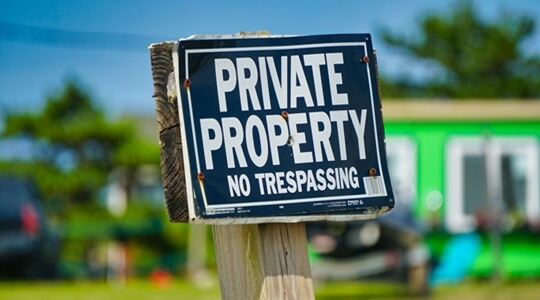The first and most important issue to consider is the nature of the transaction itself: whether it involves a leasehold or freehold business.
A freehold business includes the land itself and the assets fixed to it. A leasehold business does not include the land, so the buyer will need to make separate arrangements with the landlord (either by taking over the existing lease or negotiating a new one). In either case, the sale usually includes assets like plant and equipment, the business name and any associated intellectual property.
Aside from that core issue, there are other issues that frequently arise.
Due Diligence
For buyers of caravan parks, doing the correct due diligence and understanding the business is fundamental. It’s also essential for the seller to understand this; the buyer needs to review the business’ financial information, and if the Seller doesn’t have this information ready and available the sale will be delayed or could be terminated.
Most contracts will include a due diligence period (e.g. 30-90 days), before they become unconditional. The due diligence program that should be run will depend on the state the park is in, the type of park and what’s being sold, commonly our investigations including reviewing the following:
- lease terms;
- local council and state approvals;
- insurance requirements;
- asset and land ownership structure (including restrictions on title);
- occupancy agreements;
- employment contracts; potential for subdivision of land;
- taxation and duty consequences; and
- financing and mortgaging requirements.
Lease Terms
Whether you are selling or buying a leasehold business the lease must be carefully considered. It’s essential to know about the rent and its increases, how long the term is, who repairs what and guarantees required, just to name a few.
Two commonly overlooked aspects for both sellers and buyers are the make-good/redecoration obligations and the landowner’s first right of refusal. Typically, the landlord may decline consent for lease transfer if the premises redecoration obligations are incomplete. Normally sellers in that scenario are left with the options of giving money to the landlord to complete the works or pushing the refusal dispute through the Courts (both of which could be costly).
The first right of refusal by the landowner is frequently overlooked. I’ve acted for clients who’ve established an informal agreement with a prospective buyer only to later discover the requirement to offer the business to the landowner, resulting in the termination of that agreement upon acceptance by the landowner. Missing this clause and proceeding with contracts may force the leasehold seller into a situation where they are required to sell to 2 different parties, risking a court dispute and potential damages.
Lender Considerations
Most buyers will require finance to assist with the purchase. Where the buyer is buying the land and business usually there won’t be an issue as the lender can take a mortgage over the title of the land. However, where a buyer is taking the leasehold only then lenders can be trickier to deal with.
It is common for a lender to require a mortgage over the leasehold interest of the business, and a security interest registered on the Commonwealth Personal Property Securities Register (PPSR). This means that the buyer has to get the landowners permission for the mortgage to be registered. The buyer’s lender will require that it and the landowner sign a Deed of Entry providing the lender the right to take possession of (and operate) the business and in some cases deal with the business assets. The landowner will often have issues with agreeing to this power; the Deed of Entry has to be carefully considered by all parties.
GST and “going concern” provisions
Although this law has been in operation for over 20 years it can still cause sellers and buyers difficulties and expose them to significant extra expense if not considered properly.
In a sale of land or a business, GST is usually payable (and therefore extra stamp duty arises) unless an exemption applies. The most common exemption is for the sale of a “going concern”.
For leasehold caravan parks that exemption is usually easy to obtain; the seller should sell all things necessary for the continued operation of the business (being the park assets and the right to use the premises through the transfer of the lease).
For the sale of a freehold business, determining the necessary elements for its ongoing operation can become complex. The contract should explicitly address this issue, including provisions for potential disagreements with the ATO. In such cases, it’s not about the premises needed to continue the business but what additional requirements are essential. In a recent business park transaction I handled, the approval for use came with non-transferable conditions. This ultimately led to the inability to use the going concern provisions, which also negatively affected assessed stamp duty and buyer financing.
Warranties in the Contract
Arguably, one of the most important factors of any Contract of sale for a Caravan Park is what warranties are included, and which aren’t.
Warranties are promises made by a seller about the quality and performance of the assets being sold. Warranties in a caravan park sale commonly include:
- the seller’s capacity to sell;
- business assets and encumbrances;
- plant and equipment;
- pending litigation;
- environmental compliance;
- employees/OH&S;
- tax; and
- planning approvals.
It is important to emphasise the competing priorities of the buyer and seller in respect of these warranties.
For buyers, warranties can act like an insurance policy for your business (minus the exorbitant premiums). This “policy” allows the owner to make a damages claim against the prior owner for a breach of a given warranty or an action or thing done by the previous owner which was not disclosed or discoverable under the due diligence. Buyers therefore want broad and detailed warranties.
Sellers typically prefer fewer warranties, which isn’t always feasible given the above. To address this, a common compromise is to tie all warranties to the buyer’s due diligence investigations. In other words, no claims can be made if the risk of liability was disclosed to the buyer before the contract was finalized. Sellers should also consider limiting their liability for warranty breaches, such as within a 12-month post-sale period and capping any breach claims at, for example, 70% of the purchase price.
Insurance
We have recently noticed a rise in challenges concerning landlords and tenants obtaining Products Liability insurance. Several insurance providers are declining coverage, citing factors such as the park’s location in flood-prone or bushfire-prone areas among other reasons. These complications can be addressed but are introducing an additional layer of complexity to the sale and purchase of both leasehold and freehold interests.
As the above discussion suggests, buying and selling caravan parks can be a complex process. However, thorough and commercial legal representation can ensure that buyers and sellers are properly protected and guided through the transaction. If you’re thinking of buying or selling a caravan park, give us a call.




